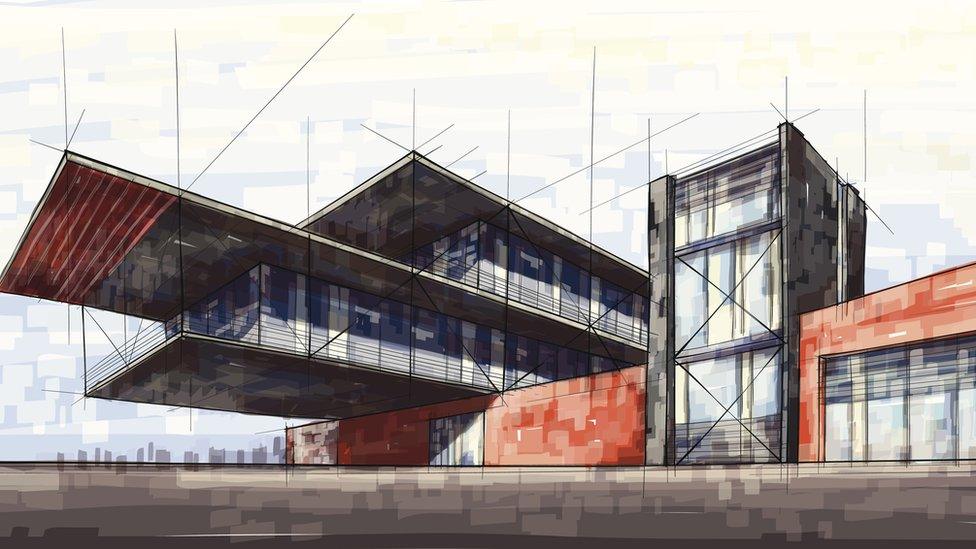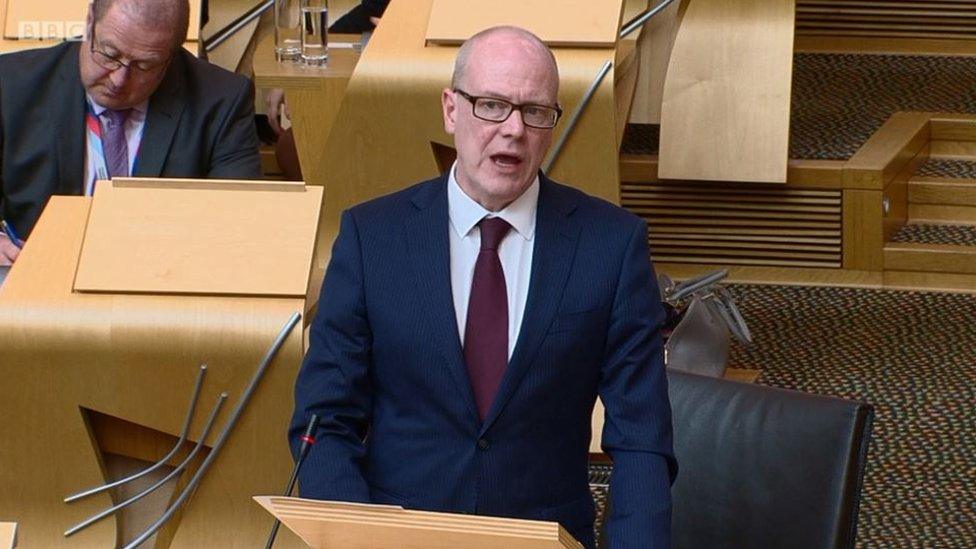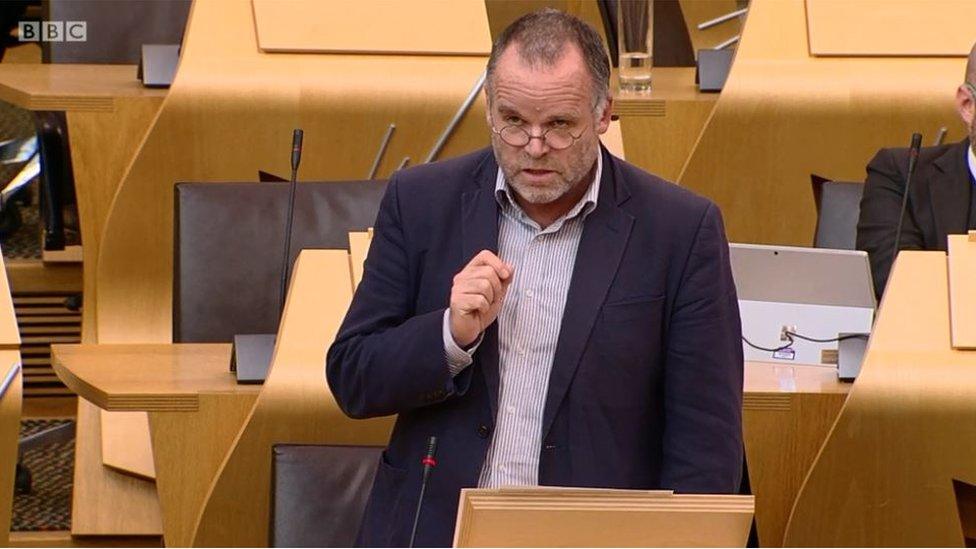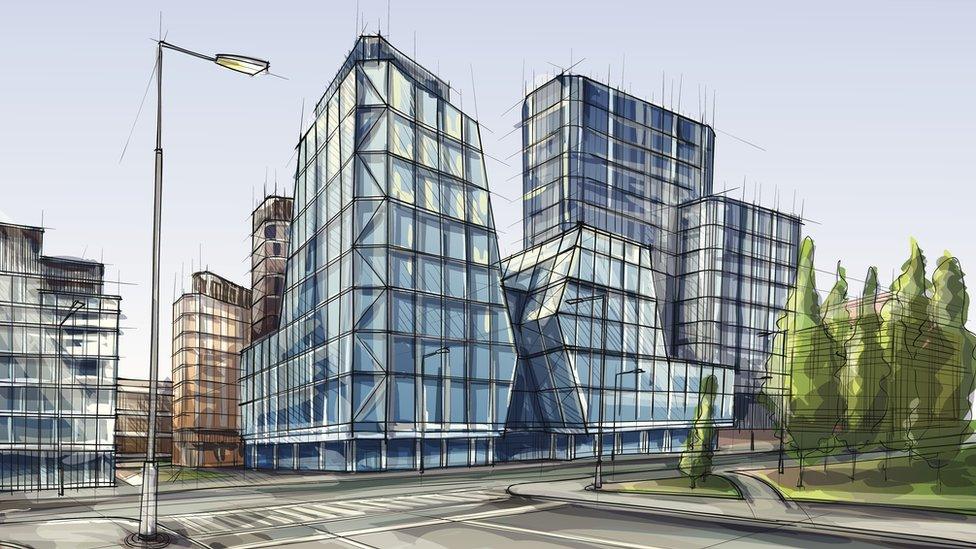MSPs agree 'radical' reforms to planning system
- Published

The bill aims to make local development planning simpler and more embedded in communities
"Radical" reforms to Scotland's planning system have been agreed by MSPs after a three-day debate.
Ministers introduced the Planning (Scotland) Bill aiming to streamline planning and "empower communities".
However, they raised concerns that hundreds of changes made during committee consideration could instead create "unnecessary burdens" and "millions of pounds of new costs".
After further amendments were agreed, the bill was passed by 78 votes to 26.
Opposition parties claimed there was an "SNP-Tory stitch up" to cut more ambitious plans from the final bill, and Labour, the Greens and Lib Dems all voted against it.
The planning bill was introduced by the government in a bid to overhaul the planning system, to "strengthen its contribution to inclusive growth, housing and infrastructure delivery and empowering communities".
The legislation includes powers for people to draw up "local place plans" about issues including housing, open space and community facilities, that planning authorities will be legally required to take into account.
Councils will also have to work together on "regional spatial strategies" with long-term plans for large-scale developments.

Planning minister Kevin Stewart said the bill was a "radical new way forward for planning in Scotland"
Planning minister Kevin Stewart said the bill would give local authorities more powers, and "put sustainable development at the heart of the system".
He said: "The bill is a radical new way forward for planning in Scotland. There is now more scope for local planning to influence regional and national plans, and we expect to see more collaboration where people and local authorities across Scotland work closely together for all our benefit."
Tory planning spokesman Graham Simpson said the bill "can deliver growth across Scotland that is greener and includes communities in the decisions that affect them".
But Labour's Alex Rowley said the bill was "a shameful missed opportunity" and "won't tackle the big problems we face as a country".
Green MSP Andy Wightman said the bill was "deeply disappointing" and "a new era of SNP centralisation", while Lib Dem Alex Cole-Hamilton said it was "a bill for lobbyists and special interests, not for ordinary people".

Green MSP Andy Wightman put forward a number of proposed changes to the bill, but ultimately voted against it
The bill is the most-amended piece of legislation in Holyrood's history, according to Mr Simpson.
More than 230 amendments were made to the bill at committee stage, introducing a raft of new measures. Mr Stewart subsequently said changes would need to be made to "rescue" the legislation from "added costs and added bureaucracy".
More than 150 further changes were subsequently agreed in the final chamber debate, many of them supported by SNP and Conservative members against the votes of Labour, the Greens and Lib Dems.
Plans for a "land value capture" system were removed from the bill, while stricter regulations on short-term lets were stripped back.
'Causing misery'
Mr Wightman had earlier added in a requirement for people to get planning permission if they wanted to convert their whole home into a short-term let. Members spoke out about the impact of these lets in Edinburgh in particular, saying they were "causing misery" and a "Disneylandification" of the city.
However, a fresh amendment limiting the new rule to specially-designated "short-term let control areas" was passed, with Tory MSP Rachael Hamilton arguing this was a more "flexible approach" which "allows local authorities saturated by short-term lest to regulate" without impacting adversely on others.
Mr Wightman said this was a "wrecking" amendment which "sabotaged" the measure.
Opposition members also failed to add provisions to let communities appeal against planning decisions, a "third party right of appeal".
Labour's Neil Findlay said "change is desperately needed", with developers holding "all of the power" in the planning system.
However, Mr Stewart responded that "developers don't elect councillors, communities do elect councillors, and they're the ones who take democratic decisions".
- Published20 March 2019

- Published22 November 2018
